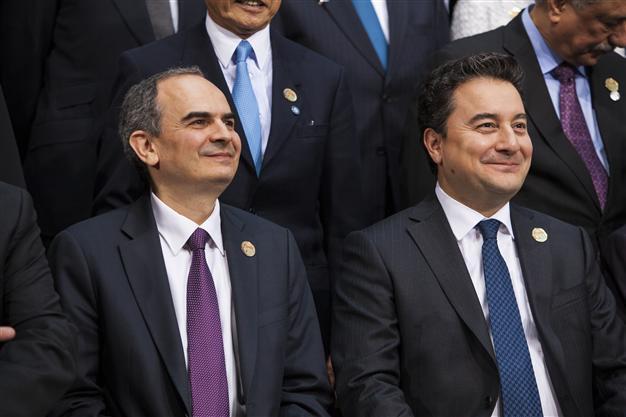Inflation to decline in second half of 2015, says Turkish Central Bank head
WASHINGTON - Anadolu Agency

AA Photo
The decline in inflation will become more pronounced during the second half of the year after a partial correction in food prices, Turkish Central Bank Governor Erdem Başçı said on April 18, according to the Bank’s website.
Speaking at a presentation to investors during the spring meetings of the International Monetary Fund and World Bank in Washington D.C., Başçı said the decline in inflation excluding energy and food has continued in recent months.
“Cautious monetary policy along with prudent fiscal and macro prudential policies are having a favorable impact on core inflation trends,” he said.
However, Başçı noted that elevated levels and high volatility in food prices continued to weigh on headline Consumer Price Index (CPI) inflation.
“We expect a partial correction in food prices in the second half of the year... Weather conditions are more favorable this year compared to 2014. The Food Committee was established and began working,” he said.
In early December 2014, the Food and Agricultural Products Markets Monitoring and Evaluation Committee was established to monitor food pricing.
Başçı said Turkey’s relative real GDP per capita had been increasing during the disinflation period since 2014.
Food inflation represents 14 percent of overall inflation in the country. The World Bank has forecast Turkey’s inflation rate to hit 7 percent at the end of 2015. The government’s inflation target is 6.3 percent for the year and 5 percent for next year and 2017.
Consumer prices in the country rose 1.19 percent in March, bringing the annual inflation rate to 7.61 percent from 7.55 percent in February, according to the Turkish Statistical Institute.
The decline in inflation is boosted by the decline in commodity prices, especially oil, which is also helping the Turkish economy on two other fronts, current account deficit and growth.
“The impact of lower oil prices will become more visible in the coming months,” Başçı told the investors at the presentation.
“Adverse impacts of geopolitical developments on external trade are offset by the increasing market share of Turkish exports globally.... and especially in the European Union. Our firms are quite flexible in shifting to new trade destinations,” he said.
Turkey’s current account balance has been improving since 2011. “The current account deficit is mainly financed by long-term borrowing and foreign direct investments,” he said.
According to the Central Bank governor, structural reforms will further boost the growth potential of Turkey.
“Structural reforms, business dynamism and sustained European recovery will support exports and the prospects for balanced growth,” Başçı added.
The 12-month rolling current account deficit declined to $42.8 billion (5.4 percent of GDP) in February 2015, from $46.9 billion (5.8 percent of GDP) in September 2014, the World Bank said in its regular economic brief of Turkey on April 17.
The Central Bank’s Monetary Policy Committee is due to meet on April 22 to decide whether to raise or lower interest rates.
Turkish government officials have repeatedly criticized the Central Bank for maintaining high interest rates, arguing they could be limiting economic growth.
However, economists do not expect any change on the Bank’s main interest rate.
By not changing the rates, the Bank will keep interest rates relatively high, a move that may help to support the Turkish lira, which has lost more than 10 percent of its value against the dollar since the beginning of the year.
